#I might make lgbt icons for the protagonist who wins
Text
ULTIMATE SHOWDOWN!!

#I might make lgbt icons for the protagonist who wins#soulsborne#dark souls#dark souls 2#dark souls 3#elden ring#bloodborne#demon's souls#sekiro shadows die twice#chosen undead#bearer of the curse#ashen one#good hunter#tarnished#slayer of demons#sekiro#poll
485 notes
·
View notes
Text
Loki (2021) Positivity from an Anti
Ok so all of my mutuals know I’m extremely anti-Loki (2021), anti-sylki, and anti-sylvie. But at a certain point, even we antis get tired of all the negativity. So! Here’s some Loki series commentary in the opposite direction! This is a list of all the things about the show that I loved :)
Also adding a disclaimer that all of this is just my opinion and some of my fellow antis (or even people who liked the show) might disagree, and that’s fine! I’ve been planning this post for awhile. I always say in my other posts that I don’t entirely hate the show and I wanted to be a little more specific about what I think are its good aspects. Feel free to leave your thoughts!
• Mobius is a gem (Owen Wilson owns my whole heart) and his relationship with Loki is so so great. He’s not one-dimensional at all, he has conflicted loyalty and is morally complex, and he has the tragic backstory- which makes him a perfect choice for eventually becoming Loki’s first genuine friend.
• The casting was really really great. Lots of women and people of color. Most of the female actresses (as well as the males) are over 30, which isn’t very common and is fantastic!
• Superb acting all around. I can’t think of a single scene where the actors under or oversold it.
• Beautiful set design, incredible cgi, and gorgeous cinematography overall. It looked more like a movie than a tv show, which is really good.
• Kang being the big bad was a huge plus for me. Johnathan Majors was perfect in the role, his vibes were immaculate, and I was honestly pretty worried that the man behind the curtain would end up being another Loki variant, which imo would’ve been boring and predictable and counter-productive, so it was a big relief when that didn’t happen.
• I like that it sets up a bunch of future marvel movies, rather than being contained to its own little world. It gives it more importance and (hopefully) will encourage writers to not just toss Loki’s character aside in future projects.
• All the Loki variants were delightful. All of them except Sylvie. Kid Loki has my heart. Boastful Loki is a fashion icon. Alligator Loki is a savage. President Loki is the superior variant. Classic Loki became my fav character in less than half an episode.
• It showed some more variety in Loki’s magic. A lot of his powers we’ve seen before, but it feels like they were portrayed a bit more blatantly in the show. The energy blasts, the telekinesis, the teleportation… Outstanding.
• It also implied that Loki has the potential to be waaaay more powerful than he knows he is right now, which? Yes.
• Some of the quotes- and the themes behind them- are just profound as hell. Such as:
“I think we’re stronger than we realise.”
“It’s never too late to change.”
“You can be whoever you wanna be, even someone good.”
“We’re Lokis. We survive. It’s what we do.”
“Loki, God of Outcasts.”
“The universe wants to break free, that’s why it manifests chaos.”
• Technically Loki was Marvel’s first canon lgbt (bi) character, which is a win. His genderfluidity is also technically canon, even if it wasn’t really acknowledged on-screen.
• There were a lot of throwback references to Thor 1, Avengers, and Thor The Dark World. Which I loved.
• Sylvie’s so pretty. Her hair and makeup and costume were all perfect.
• Big fan of Loki finally getting Laevateinn.
• Sufficiently slutty imagery, courtesy of a female director (Loki in a collar, kneeling to Sif, President Loki looking down into the bunker, the hair flips)
• The music was Excellent Wonderful and Superb.
• I love that Loki being a good singer is now canon.
• I love that Asgardians having their own language is now canon (even if it’s basically just Icelandic).
• I also love that they disproved all of those “Loki was a shy nerdy wallflower pre-canon” theories in Episode 3. The drinking/eating/singing scene was fun, if a bit wacky.
• There’s a million different reasons why Loki does what he does, especially in regards to the New York attack (I’m literally writing a huge meta on them), but somehow I never considered that Loki being desperate for control was one of them. It makes a lot of sense, and I always love getting new insights into his motivations.
• I love that Loki finally outright acknowledged that he doesn’t enjoy hurting people. We Been Knew™️ but it’s still nice to hear it out loud from his own mouth.
• The TVA outfit wasn’t as hideous as some people make it out to be. It could’ve been A Look, even. You know, if he’d just accessorised a little better. And kept the jacket on. And not gotten sweaty. And not gotten dirty. And maybe had at least one other costume change… But it had potential, though!!
• Even though I despise the Obvious One, I did actually like some of the other romance crumbs they tossed us (sifki, Loki x the flight attendant).
• The whole DB Cooper thing was iconic idc idc.
• Loki’s hyper sort of overly excited puppy attitude in episode 2 was actually pretty refreshing and funny (for awhile). And now I can headcanon him as adhd, yeehaw.
• “We’re all villains here.” That quote was iconic, my favourite one in the show. And the entire theme that it summarised was really great as well. When you think about it, every single main character in this series has been the villain at one point or another. I mean, I know all marvel characters do bad things etc, but none of the Heroes are ever narratively categorised as Bad. This show did just that with all of them, though. . Loki was framed as the psychopath that attacked New York. Sylvie was framed as the murderous fugitive. The TVA/Ravonna/Mobius were framed as the murderous fascists. Kang was framed as the crazy totalitarian. It’s made clear that all the Loki variants were the villains of their stories.
However, every single main character in the series is also framed as the Hero at a certain point. Loki is framed as the main protagonist who throws a wrench in the TVA’s dastardly plans. Sylvie is framed as the persevering freedom fighter who wants to take down the fascists. The TVA/Mobius/Ravonna are framed as the ones who maintain order for the greater good. Kang is framed as the weird but ultimately benevolent wise man who’s just trying to prevent something worse from happening. The Loki variants are framed as generous allies who befriend the main character and help him on his journey.
Everyone in this equation is openly acknowledged by the narrative to be morally corrupt, but not entirely morally bankrupt. There are no Straightforward Hero Figures (like the Avengers) in this entire scenario at all, and that makes for a super interesting dynamic that marvel has never done before. So yes: “We’re all villains here.” But also: “No one bad is ever truly bad, and no one good is ever truly good.” I loved that.
• Even if it wasn’t really enough imo, I still treasure the crumbs we got of Loki being competent and capable (him putting the collar on B-15, him figuring out Sylvie’s hiding place, him teaching himself to enchant on the fly while fighting a giant cloud beast of eldritch proportions).
• I love that B-15 was the one who stepped in and saved the day in Episode 4, when we all thought it was gonna be Mobius. What a queen.
• Marvel usually has a bit of a problem with creating compelling and memorable side characters. But aside from Sylvie, I genuinely got attached to every single character in this show. Like Casey, C-20? I was seriously emotionally invested in them and they were only in like 2 episodes. Wtf.
• Introducing the TVA storyline in the Loki series specifically was a really good move. I’m not saying they executed it well, just that it had a ton of potential. A lot of people have wondered why marvel even thought to put those two (the TVA and Loki) together, when they had literally nothing to do with each other, nothing in common, and essentially no connection at all. But when you think about it, it’s a really interesting twist on both of those stories. Forcing the embodiment of destructive chaos and the pillar of rigid order to interact could make for some seriously entertaining and compelling television. And as far as meshing these two completely unrelated entities together goes, I thought they did it pretty well- at least just the bare bones of the story (loki being arrested by the TVA and being one of their most common variants).
So that’s it! If you guys (fellow antis) wanna add stuff you liked, feel free. If anyone wants to discuss (or debate) my list, feel free to do that too!
34 notes
·
View notes
Note
I've the how to your dragon series and the wizards of once books. Any recommendations for books to read that are similar?
Thank you so much for this question!! 😊
I’ll do my best to answer, however, English is not my native language, so I am not super familiar with the Great Middle Grade series that undoubtably exist. I also read too many non fiction books when I was younger
Here are a few books/book series I found enjoyable in a similar way. (The list is not super long and none of them feature dragons, sorry.)
Most of these are more like twoo, because they’re really good but can’t touch Cressida’s masterpiece. I cannot think of ANY book series that can compare to httyd’s philosophical three way war and grand finale.
(Click read more for a list of half baked book recommendations by me XD)
1 ~ The Care and Feeding of a Pet Black Hole - Michelle Cuevas
This is a stand alone that could easily be “How to take care for a pet black hole” written by Hiccup. It’s a short book, but it has the exact same dry and clever humour and becomes truly meaningful further into the story. The ending is bittersweet too.
This is probably the book I think has the most similar atmosphere to httyd. If you could collapse the emotions from httyd into 200 pages, this would be the closest matching result.
2 ~ Percy Jackson - Or literally anything by Rick Riordan
Rick Riordan is iconic and the only one who could win a ‘chapter title battle’ from Cressida. Examples: “My sword has a better social life than I do” or “A God buys us cheeseburgers” I am very ashamed to admit I have only read the first Percy Jackson book (I really should read the rest, you may sue me for not reading this iconic series) but I really liked it and from what I heard about the rest of the series it only gets better.
At least one crazy adventure each book, plenty of swordfights and a snappy protagonist to comment on everything. I’m not sure how to describe it accurately, but these books are written with the same hilarious tone as Cressida’s. You can read them out loud and they’d be funny I guess?
Also: Main characters with ADHD and dyslexia (looking at you Wish and Xar), characters from different countries, cultures and LGBT characters who have storylines outside of that characteristic. If you liked vikings, Magnus Chase is his triology about demigod children of Norse gods (though long series probably won’t bother you as httyd book fan).
3 ~ Cogheart - Peter Bunzl
These books are fun steampunk adventures. The setting is vaguely historical, but with victorians instead of vikings, pesky adults who don’t listen to children very well and an unusual pet companion. There’s also a secondary storyline about how beings with human intelligence are treated as lesser, and it’s treated important enough without overshadowing the main plot.
I’ve read the first two and so far it’s a series where you can read each book separate (though the first few httyd books could also be read as separates). There are two more and perhaps the secondary citizen issue will end up being the overarching plot?
4 ~ How to Become King - Jan Terlouw
The clue is in the title. The main character wants to become king, but has to complete 7 impossible tasks first. It does not get more straightforward than that.
The book does not have Cressida’s ridiculous humour, but the main character is Pure Good like Hiccup and each impossible quest actually has a lot of depth to it. A big part of the story emphasizes how humility and kindness are the things that make a good king. It’s a pretty old book and probably the most unknown one on this list.
5 ~ The Slightly Alarming Tale of the Whispering Wars - Jaclyn Moriarty
(I own a signed copy of this and the author was so nice) It is the second book set in this world, but with new characters. She said it can be read on its own, but perhaps it could be a bit confusing if you haven’t read the first. I hadn’t read the first and I was confused.
The absolute highlight of this book was the narration. There are two narrators who take turn narrating, and while doing so they comment on each other. They argue with each other and quip about how they do a better job narrating. It makes you feel like you’re part of the story too, similarly how Hiccup addresses the reader and comments on his younger self.
6 ~ Artemis Fowl - Eoin Colfer
Did anybody say fiendishly clever plan? When it comes to cheating death and trickery, Artemis Fowl is Hiccup and Xar’s long lost sibling. Except.... he is not as nice. To quote Camicazi: “You see, [I] have no morals at all. It's very useful...”
Where Hiccup was a Pure Cinnamon Roll and Xar an emotional hotheaded disaster, Artemis is a straight up bastard who cares for only four (4) people in total.
It’s very reminiscent of the earlier httyd books. Silly schemes, potty humour and characters that walk a fine line between likeable and annoying. I have not read the entire series yet, but the characters slowly mature with each book.
7 ~ Ella Enchanted - Gail Carson Levine
This is more of a twisted fairytale like twoo and not a fantasy epic like httyd. It’s the story of a girl on an impossible quest in a fantasy world. There are a lot of fairytale tropes, but I really liked how the extremely complex kingdom fit into one book.
It’s the only book on this list where different languages are a major plot point, and there is an inequality problem with some creatures, similar to the wild dragons in httyd. The ending can’t compare to the satisfying yet bittersweet solution of book 12. It’s a fairytale happily ever after and certainly easier on the heart than httyd.
? ~ Anything by Roald Dahl
Everyone knows Roald Dahl, which is why this is probably an useless recommendation. His books are funny, crazy and sometimes a bit grim, but always great. What else can I say?
? ~ The gentleman’s guide to vice and virtue - Mackenzi Lee
Ok, this one is by no means a middle grade book. More like 15+. (There is violence and romance is a major plotline. Both the violence and romance are 15+, and while I did not find it too bad, it might not be for everyone)
However, it has almost all of the ingredients of a Cressida book. I really felt like I should include it because it belongs somewhere high on this list! On the surface it’s a whacky adventure with a sassy protagonist in a somewhat historical fantasy setting. Below that surface, it deals with major issues in an absolutely beautiful way.
The quotes are artistic, and this is the ONLY ya book I’ve ever read with messages that hit as hard and are written as subtly as the ones in the httyd books. (I have read books more beautiful, and books with greater messages than this one, but the serious parts were woven into the story in such a refined way.... I’ve only read that in Cressida’s books.)
Mind you, the protagonist is more of a Disaster Boy ™ than Xar and I wanted to slap him sometimes. Like Xar, he learns and gets better.
~
A few other books I should mention
Coraline by Neil Gaiman. The story is not similar to httyd and twoo at. all. which is why it’s not on the list. However, this is the ultimate book about not-so-great parents. Hiccup and the entire twoo gang can relate. Just a heads up: this is a somewhat scary story. Cressida doesn’t shy away from suspense and terrifying details, but in Coraline, the suspense is one of the main aspects.
A series of unfortunate events from Lemony Snicket. I haven’t read this, but I still want to. From what I’ve heard it’s a sarcastic adventure series that’s a lot more serious than it looks.
I have never read this series either, I do not even know what it’s about, but I’ve heard people from the httyd books fandom talk about it: Keeper of the lost cities by Shannon Messenger.
~
I hope this list was the kind of answer you were hoping for!
If you are looking for better recommendations, there are a lot of httyd book fans who can give you some, like @books-are-like-dragons @thefellowshipofthedragonmark @httydbooks-doodler .
23 notes
·
View notes
Text
16 Awesome Queer Sports Books: Books with LGBTQIA+ Athlete Representation
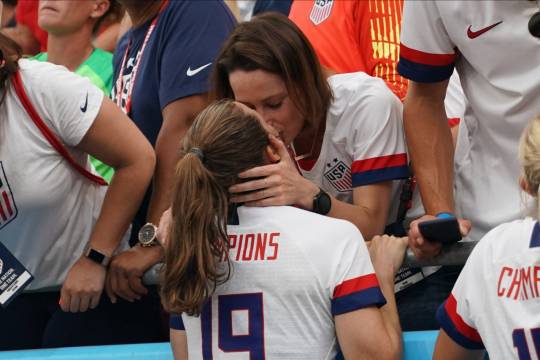
Image: Daniela Porcelli/Getty Images.
In some ways, the last few years has been a golden time for LGBTQIA+ athletes. The 2019 Women’s World Cup was a record tournament for LGBTQ+ visibility, with at least five players on the U.S. women’s national soccer team being openly queer (Ali Krieger and her now-wife Ashlyn Harris, Megan Rapinoe, A.D. Franch, and Tierna Davidson), as well as coach Jill Ellis, and another player coming out in the moment captured in the photo above, kissing her girlfriend in celebration. Rapinoe’s girlfriend, Sue Bird, another out lesbian athlete who plays in the WNBA, wrote an open letter to the President of the United States. A blockbuster movie told the story of iconic out lesbian tennis star Billie Jean King. Jason Paul Collins came out in 2013 (but retired the following year). Michael Sam was the first openly gay man to be drafted into the NFL in 2014 (but he has since retired).
But, according to the Human Rights Campaign, 70% of LGBTQIA+ people don’t come out to their teammates while still playing a sport, and 82% of athletes have witnessed homophobic and/or transphobic language in their sport. It is still more common, especially for male athletes, to come out after they have already left their sport (TW for homophobic slurs/statements and suicidal ideation), and many athletes who are still playing face backlash (TW for misgendering & general transphobia).
These books, from memoirs by professional queer athletes to YA romances with LGBTQIA+ athlete protagonists, explore these issues and more.
Books are YA fiction unless otherwise noted.
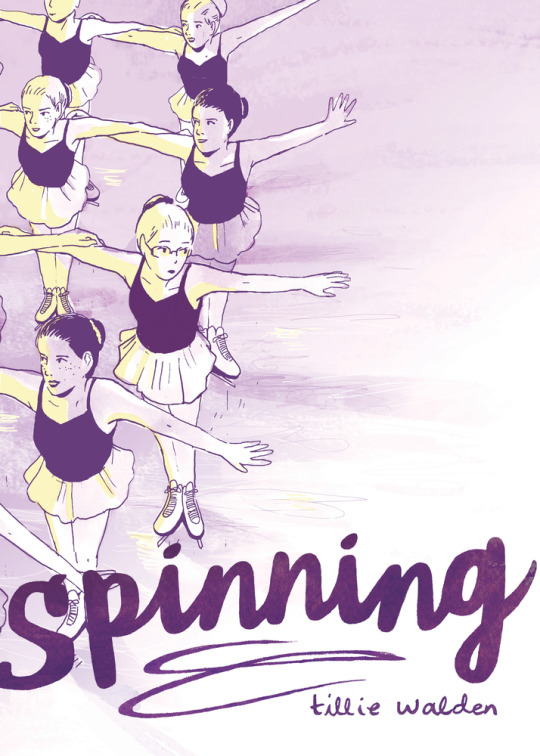
Spinning, by Tillie Walden (graphic memoir)
This beautiful graphic novel memoir captures Tillie’s experience with figure skating and why she eventually decided to give it up. Full review here.
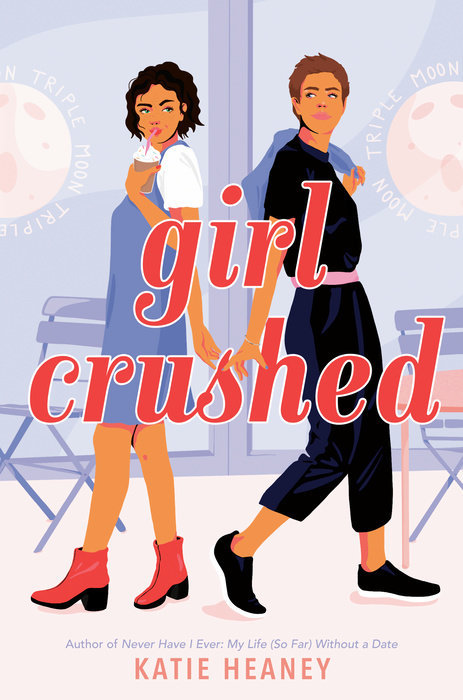
Girl Crushed, by Katie Heaney
Quinn thought her senior year would be perfect: college scouts recruiting her to her dream school for D1 soccer and her best-friend-turned-girlfriend at her side. But then Jamie dumps her, a month before the school year begins, and it’s getting a little late to have heard back from schools, if she’s going to end up on one of the top teams. Over the course of the school year, Quinn learns that her binary black-and-white, gay-and-straight, success-and-failure ways of seeing her world could stand to be a little more complicated. This book is about identity, self-esteem, friendship, crushes, and soccer. There are also many fun USWNT references! TW for some (challenged) bisexual erasure.
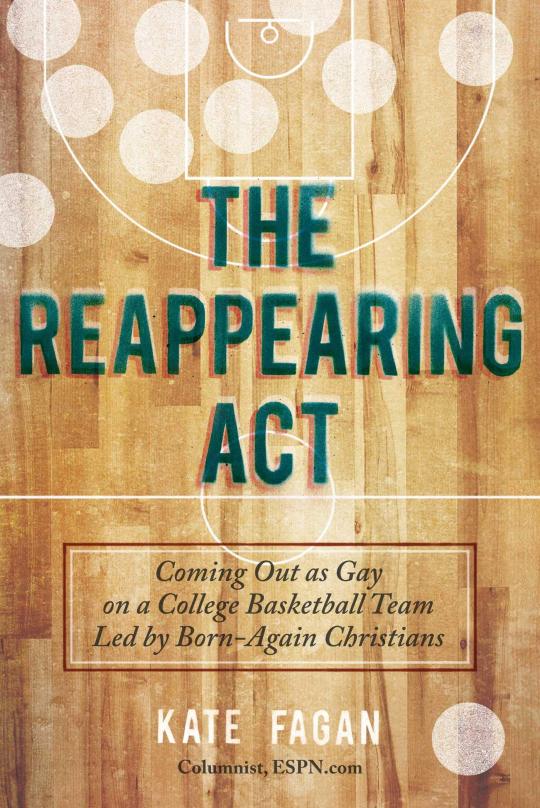
The Reappearing Act: Coming Out on a College Basketball Team Led by Born-Again Christians, by Kate Fagan (adult memoir)
Kate was thrilled to be playing basketball for a nationally-ranked school and to have a close-knit group of teammates. Her best friends were part of Colorado’s Fellowship of Christian Athletes, and she tried to join them and learn about their church, but she started to realize that she might be one of those people whose “sinful lifestyles” they talked about. She had to figure out how to come out without losing her friends, and her team.
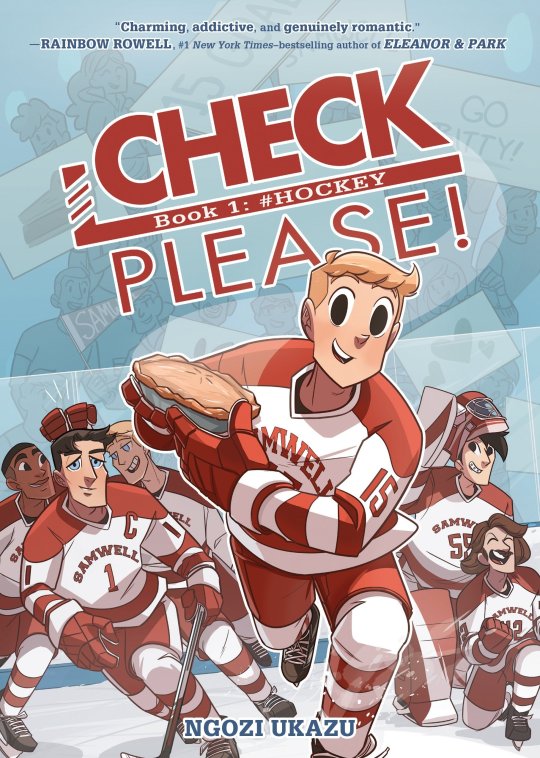
Check, Please! Volume 1, by Ngozi Ukazu (graphic novel)
This adorable graphic novel (which was originally published as a popular webcomic) follows Bitty, a former junior figure skating champion and enthusiastic baker, who somehow ended up on the Samwell University hockey team. He’s terrified of checking (what if he gets hurt??), trying to figure out if he can win over the guys with pies, and also feeling some kind of way about the hot but grumpy captain.
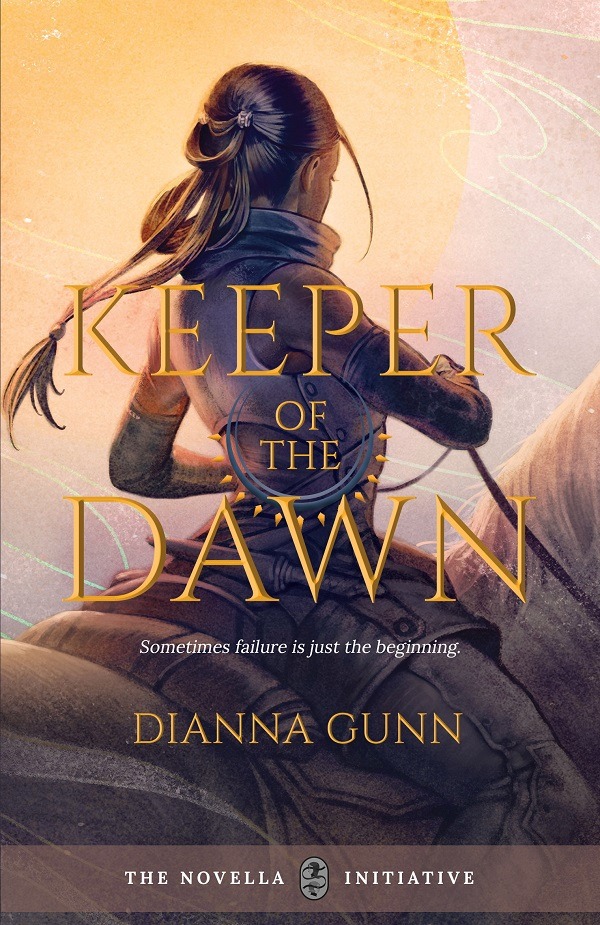
Keeper of the Dawn, by Dianna Gunn
Lai wants to become a priestess, like her mother and grandmother were before her, but first she must prove herself in the trials she’s been training for her whole life. Nothing goes according to plan, but she can still depend on herself and her skill as a fighter and a horseback rider and take matters into her own hands. This fantasy novel features an asexual protagonist and a f/f romance.
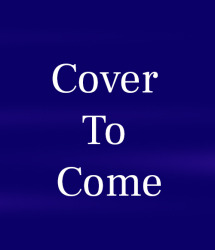
The Passing Playbook, by Isaac Fitzsimmons (2020/2021 release)
This book hasn’t been released yet, but there are so few (if any) own voices YA sports books with trans characters that I decided to include it anyway. A queer, biracial, trans soccer player is benched, and has to decide whether to fight the ruling, even though that would mean coming out to everyone…including the Christian teammate he’s falling for.

Running with Lions, by Julian Winters
This coming-of-age novel follows Sebastian, a bisexual rising senior who’s excited for his last summer at soccer camp, where his teammates are great and the coach doesn’t expect anyone to stay in the closet. But then Emir Shah, a Muslim British-Pakistani new recruit, shows up. He also happens to be Sebastian’s former best friend, and they left things on pretty bad terms. So why is he finding himself attracted to Emir all of the sudden?
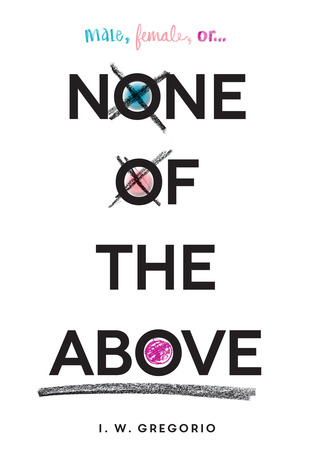
None of the Above, by I.W. Gregorio
I am hesitant to recommend this non-ownvoices intersex representation, but it’s the only book I know of about an intersex teen athlete, and, while it is imperfect and seems geared towards a non-intersex audience, there are certainly some good things to be said about it. It is informative, well-researched, and moving. Kristin, a homecoming queen and champion hurdler with a cute boyfriend, seems to be having a great high school experience. But a doctor’s visit reveals that she’s intersex, and, while she’s still coming to terms with what that might mean for her and her identity, her diagnosis is leaked to the whole school. TW for transphobic/anti-intersex slurs and bullying.
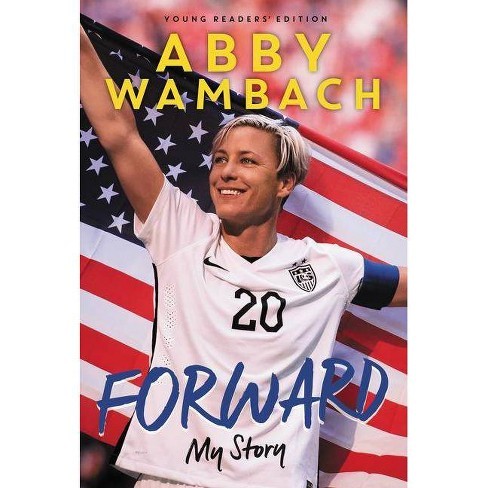
Forward: My Story, Young Readers’ Edition, by Abby Wambach (memoir)
U.S. Women’s National Team soccer star Abby Wambach tells her story with honesty and vulnerability, sharing how she came to lead her team to a World Cup win in 2015. She is open about her sexuality and romantic life (including a named mention of a certain pink-haired teammate, who also happens to be her ex-girlfriend) and how it affected her career.

We Ride Upon Sticks, by Quan Barry (adult fiction, with teen protagonists)
The 1989 Danvers high field hockey team finds themselves winning…a lot. Is it because they all wrote their names in a mysterious notebook with Emilio Estevez on the cover, and pledged themselves to dark forces so they could make the state championships? This darkly funny story explores friendship, sportsmanship, and what means to find power and sense of self as a teen girl.

Beautiful on the Outside, by Adam Rippon (adult non-fiction)
In his comedic memoir, Olympic figure skater Adam Rippon shares his journey from poverty and uncertainty to success and becoming a self-professed American sweetheart. He opens up about anxiety attacks, coming to terms with his sexuality and coming out, and some enjoyable behind-the-scenes gossip. He also narrates the audiobook.
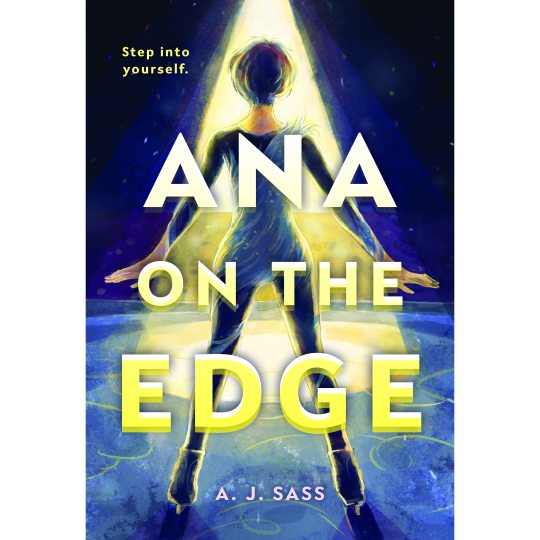
Ana on the Edge, by A.J. Sass (middle-grade, fall 2020 release)
Twelve-year-old Ana-Marie is the reigning U.S. Juvenile figure skating champion, but that doesn’t mean everything feels easy or figured out. When Ana meets Hayden, a transgender boy, at the rink, Hayden mistakes Ana for a boy…and Ana doesn’t bother to correct him. In fact, it feels good to be seen as a boy. Now Ana must decide which identity feels the most right, in time for a big competition coming up. This book isn’t out yet, but it’s due to be released in fall 2020, and it is written by a non-binary (and autistic) author, who is also a figure skater.
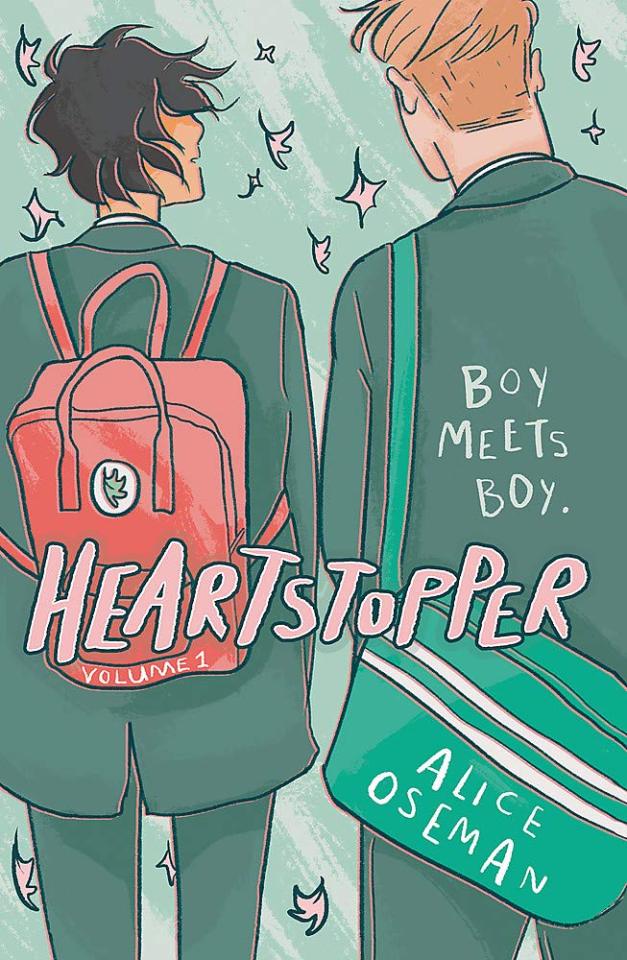
Heartstopper, Volume 1, by Alice Oseman (graphic novel)
Charlie is neurotic and openly gay (after he was outed last year and bullied for months), and hoping that Year 10 at the British all-boys grammar school will be better. He meets Nick, an upbeat, sweet rugby player, and they become friends. Soon he finds himself hoping that their friendship turns into something more.
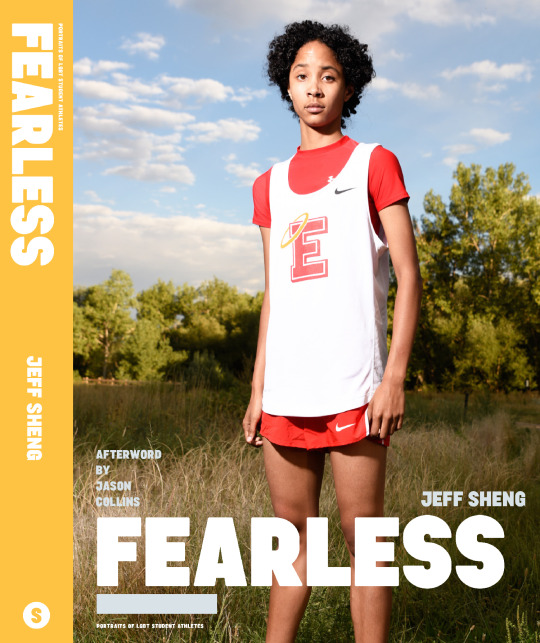
Fearless: Portraits of LGBT Student Athletes, by Jeff Sheng (non-fiction)
This is a memoir of an American artist who uses his story as a closeted high school athlete in the 1990s as a jumping-off-point to depict hundreds of photos of other LGBTQ+ high school and college athletes in the U.S. and Canada between 2003 and 2015.

Amateur, by Thomas McBee (adult memoir/non-fiction)
In this memoir, Thomas McBee describes grappling with the meaning of masculinity, violence, and sports. As a trans man, he has noticed since his transition that the world treats him completely differently and expects different things from him. But what does he want, and how does he want to define masculinity and strength for himself? He decides to train for a charity boxing match at Madison Square Garden as a way to find out.
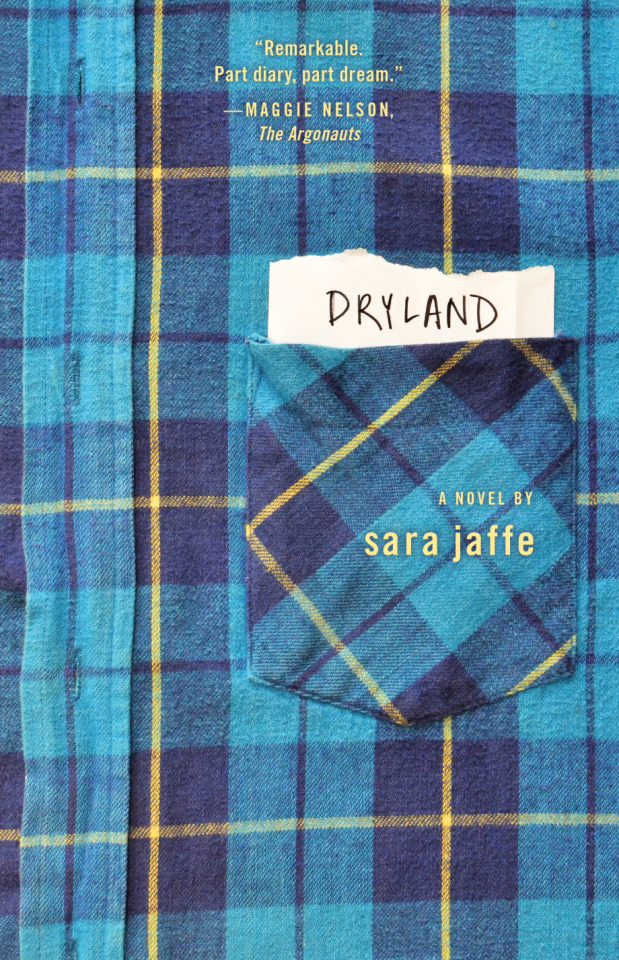
Dryland, by Sara Jaffe
Julie is a cynical teen in Portland at the height of the grunge movement, struggling to define herself and her sexuality. No one in her family is willing to talk about her older brother, who at one point seemed destined for the Olympics but then fell off the map. Julie has never considered swimming herself, but then the swim team captain convinces her to join. Is this what she’s been looking for -- a way to get closer to her brother and maybe herself?
[All book covers belong to their respective publishers].
#books#yabooks#sportsbooks#booksaboutsports#sports#queer books#queerathletes#lgbtqia#gay athletes#gay books#lesbian athletes#wlw books#intersex athletes#trans athletes#asexual#comics#graphic novels
4 notes
·
View notes
Text
Last year, the uni LGBT+ pride board I’m part of tried to organize a series of screenings that feature LGBT films with poc protagonists, and only 2-3 people showed up to each of them. We advertised the screenings as much as we could, and for as long as I could, but people just didnt come to the screenings, even though all of the films are quite critically acclaimed and reasonably popular. Tonight, I just came back from a screening of “Moonlight” and I was pleasantly surprised that roughly 20 people came to the screening, and quite a few of them are people of colour. Someone (a fellow poc acquaintance) actually told me that there is a international students’ formal tonight and they worried that not a lot of people are going to turn up, so I prepared for the worst. We put up a facebook page for the screening for only two days, literally, and 20 might not sound like much but it was way more than i or any of my board members expected.
Honestly a major reason behind the good turn out has to do with good timing. “Moonlight” just won the best picture it damn well deserved and a lot of people didn’t hear about it before its oscar win. Now that it did win, people actually wanna watch it, and the local theatre that used to show it only started to show the film again on next Monday. I watched “Moonlight” for the first time right before it was nominated for Oscar, mainly because a Chinese film critic said that watching the film made him feel like watching a Wong Kar Wai picture. At first I thought he was just imagining things, but turns out European and Asian art cinemas did in fact influence Barry Jenkins’s directing, and it’s just not that one critic that see Wong Kar Wai in “Moonlight”. That’s how i got interested, but that’s not exactly why I loved the film so much i’d say it’s my favourite LGBT film thus far. “Moonlight” bears reminiscences of Wong Kar Wai’s pictures, but it’s not a Wong Kar Wai picture and that’s a good thing.
Watching "Moonlight” with 20 something people in a campus lecture hall tonight was the 2nd time viewing the film for me. Interestingly enough, I reacted to this film similar to who I reacted to Wong Kar Wai’s films that feature Leslie Cheung. The first time I watched them, I usually thought, “it was a good film. I liked it. I think?”. The second time I watched them--that’s the time when all the details came together and the emotions hit me, raw and hard. I couldn’t stop crying the 2nd time I watched “Moonlight”, and it was weird that the movie emotionally impacted me this hard since the subject matter really isn’t something I can relate to as a non black person. Whatever the reasons are, I know that they were different reasons why I cried watching some of the Wong Kar Wai pictures the second time.
The poetic and lyrical style Wong had does not give moviegoers the kind of instant gratifications they are usually looking for, and I could see a bit of disappointment in some of the audience members because of it (they did smile politely and said they liked the film though). Before I was a film student, I was just a regular moviegoer too, and I looked for that kind of fast food instant gratification as well when I went to watch a movie. So, really, I don’t have some sort of moral high ground when it comes to appreciating art films, in fact, I haven’t watched some French new wave artists’ films till this year.
The first time I watched “Happy Together”, a pretty iconic gay film (I actually screened the film last year, but really, I should have done that this year because of “Moonlight”), I almost didn’t make it through because how much I hated the dysfunctional and fucked up relationship between Leslie Cheung’s character Ho Po Wing and Tony Leung’s character Lai Yiu Fai. I didn’t really like “Days of Being Wild” because how much I could not get past my dislike for the volatile and self-destructive dandy Leslie Cheung plays in the movie. But the 2nd time I heard his character’s theme music from “Days of Being Wild” in “2046″, I couldn’t stop crying. Watching Leslie Cheung and hearing Leslie Cheung in these two movies, feel like watching and hearing his ghost on screen. And let me tell you, feeling a dead person’s emotions can really fuck you up. I can see his ghost, hear his ghost and feel his ghost--forever preserved in films. The emotions that’s inaccessible to me in the first screening and the sense of lost and despair that I couldn’t feel all suddenly hit me during the 2nd viewing. It’s been almost 14 years since he jumped down from a hotel’s balcony, it had only been 12 years when I watched Wong Kar Wai’s movies for the first times. I only started to miss him over a year ago, but I know that I will continue to miss him years into the future.
Obviously I dug Wong Kar Wai’s overall style, but the feeling and emotions in his films only made such an impact in me because they were the emotions and feelings of a family member that never existed. Not to get mushy here (well, I already am pretty mushy and emo am i), but the memories Leslie Cheung left on and off screen makes him seem like a family member to me. He was queer, he was bisexual (maybe gay tbh), and he was Chinese. I grew up to love woman as a woman, and before I was that, I was Chinese--I am Chinese and I will always be Chinese. I really could have used someone like him to look up to. However, Leslie wasn’t just a family member, he was a unreachable and untouchable family member. You don’t romanticize family members, but you do that if you never get to know them or see them. Wong’s films can be deeply personal to me, but his films’ subject matters are never socially or culturally or politically radical (although they can be interpreted to something of that effect). Oftentimes Wong Kar Wai’s films felt devoid of substance because of that. On the other hand, Barry’s “Moonlight” doesn’t have that problem. In fact, the substance enriched the film and made the film oscar worthy.
I didn’t talk about this before, since I was searching in moonlight tag for a post that says similar things. If any of you saw a black folk talked about similar thing, I’d like to reblog that post because It’s better that commentaries about “Moonlight” comes from black folks, more importantly, black gay folks. After all, the movie was about them and made for them. I see a lot of people talking about how beautiful the “you are the only man who ever touched me” line is, but I don’t see people talking about just how important the line that say something like “black boys look blue under moonlight” is, or how important the imagery of a young chiron standing at the beach and under the moon is. That line combined with that important imagery, almost...romanticize black skin and dark skins. Now, art cinemas don’t do that shit. Art cinemas feature white people and light skin people, and it always romanticize whiter and paler skins. Art cinemas is blond hair white woman with blue veins in Godard’s films, art cinemas is Maggie Cheung’s paper white skin in Wong Kar Wai’s “Ashes of Time”, art cinemas is women that look like porcelain dolls in “Neon Demon”. Art cinemas is never for and about black people, black men or dark skin people, and it sure as hell never portrayed dark skin as beautiful the way it portrayed white skins. White skin is beautiful and humanized, while dark skin is consumable at best, dirty and sinful at worst. But with that line, with the movie’s beautiful cinematography that features dark skin colours, “Moonlight” subverts that harmful norm of portraying skin colours in films. And it’s so SO important. I talked about how important that it features black gay sexuality, black identity and black subjectivity before, but I didn’t talk about this before.
I still can’t really explain why “Moonlight” impacted me so much. I mean, I could pull some shenanigans about how universal the pain and loss Chiron felt are, but I hate the word “universal” and how problematic it is. When it’s applied to films that features white subjects, labelling white subjects’ feelings and emotions as “universal” only perpetuate the harmful notion that white experiences are the default and are supposed to be ALWAYS relatable to everyone. However, when you label a black subject’s feelings and emotions as universal--especially when a lot of these emotions stemmed from experiences and struggles unique to black people--you eradicate the blackness that’s inherent to the subjects the films feature. Chiron is black before he was introduced to have a gay/queer sexuality. To me, Chiron’s father figure Juan’s speech about how black folks are everywhere and the first ones on earth as well as his recounting about how a black woman says black boys look blue under moonlight are establishing Chiron’s identity as a black person. Mind you, that process happened before we even suspected he was a young gay boy trying to figure out his sexuality.
I guess what i could say is that I could better appreciate what Barry was trying to do the 2nd time watching his film. He was humanizing his subjects, making them sympathetic and relatable in an art cinema language, and that effort finally made the full impact on me when I watched “Moonlight” the 2nd time. I don’t think it made the same kind of impact on the 20 people i watched the movie with today. it will take time, and hopefully they get to watch the film 2nd time, 3rd time or even 4th time, and then maybe they will truly understand what Barry Jenkins was trying to accomplished.
3 notes
·
View notes